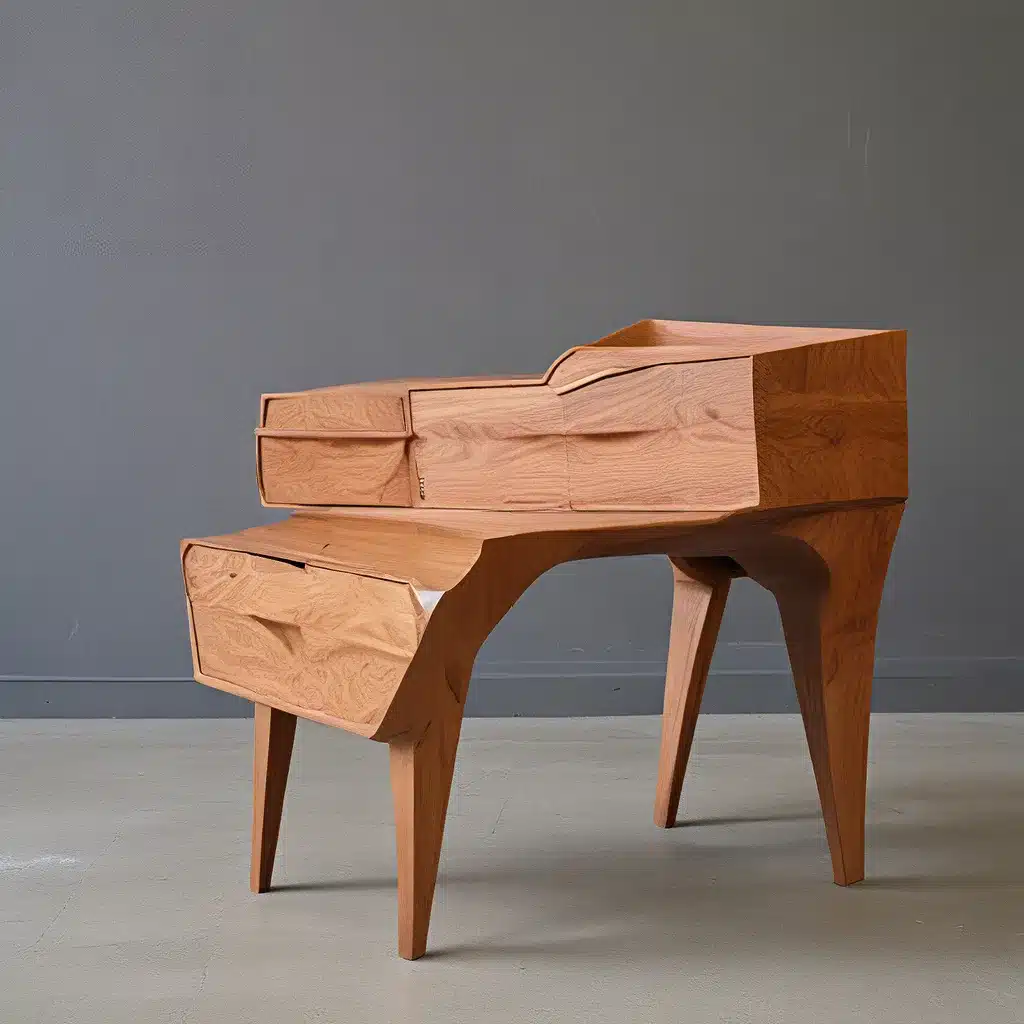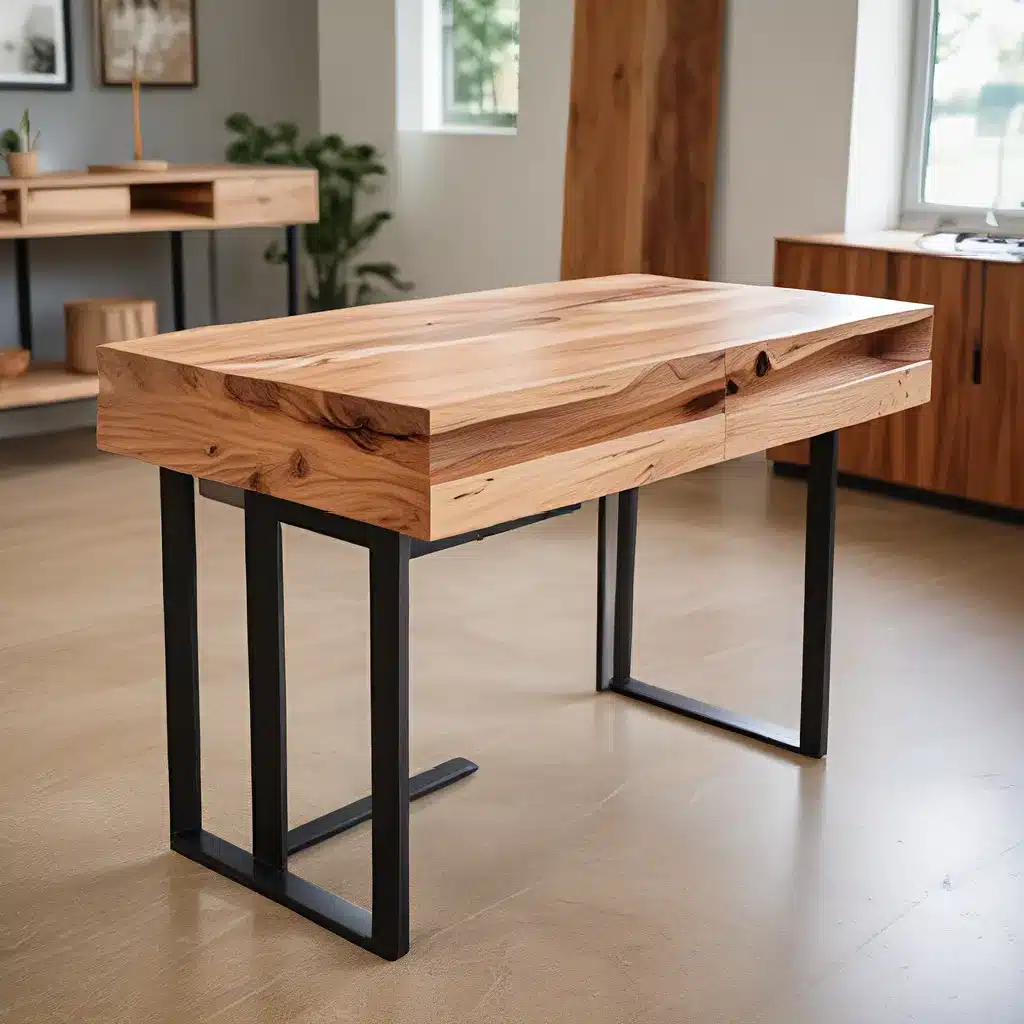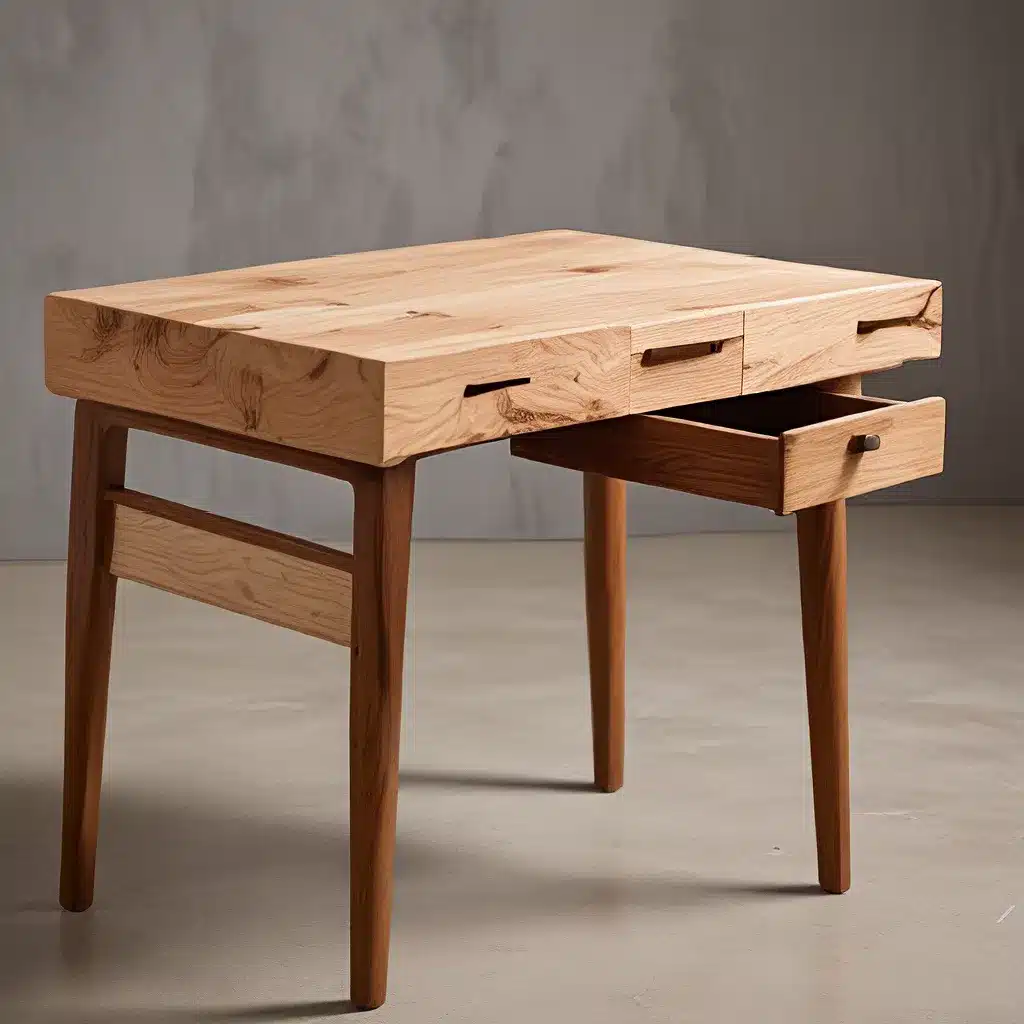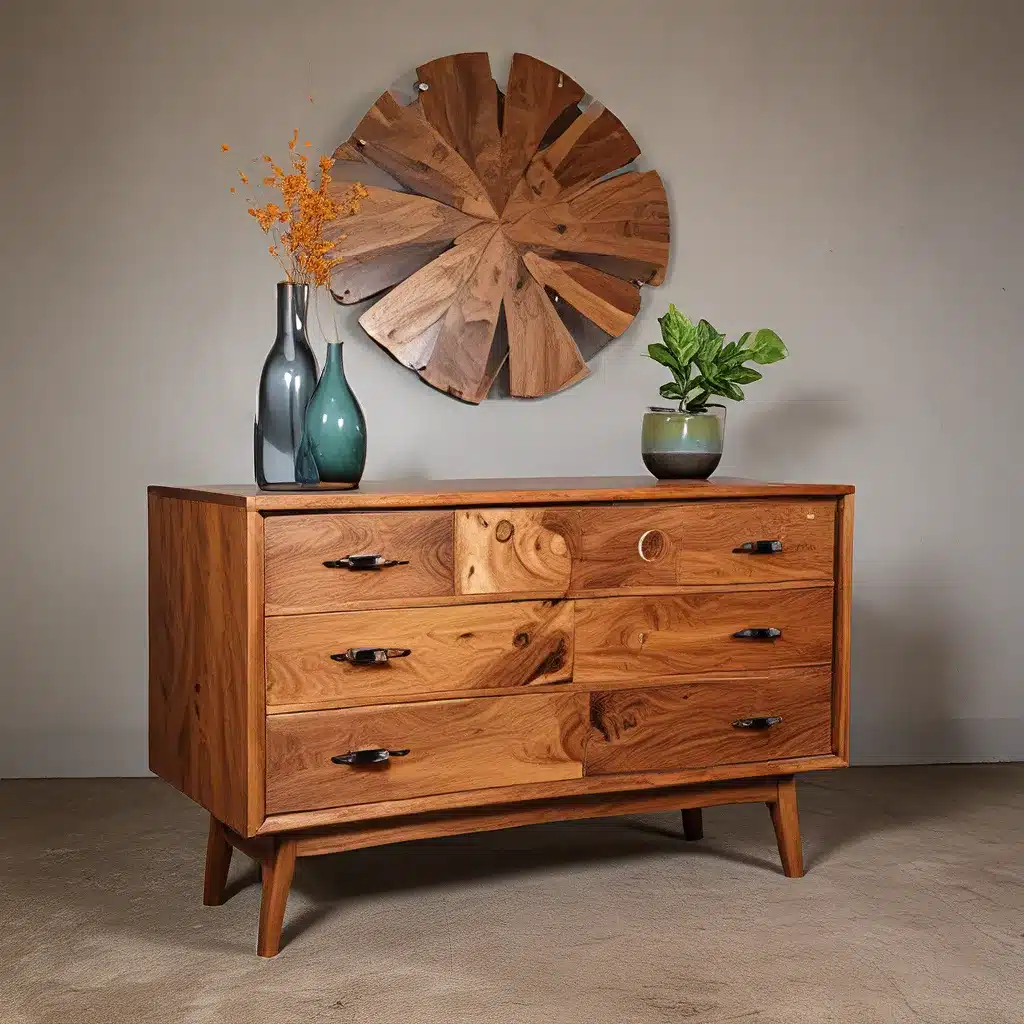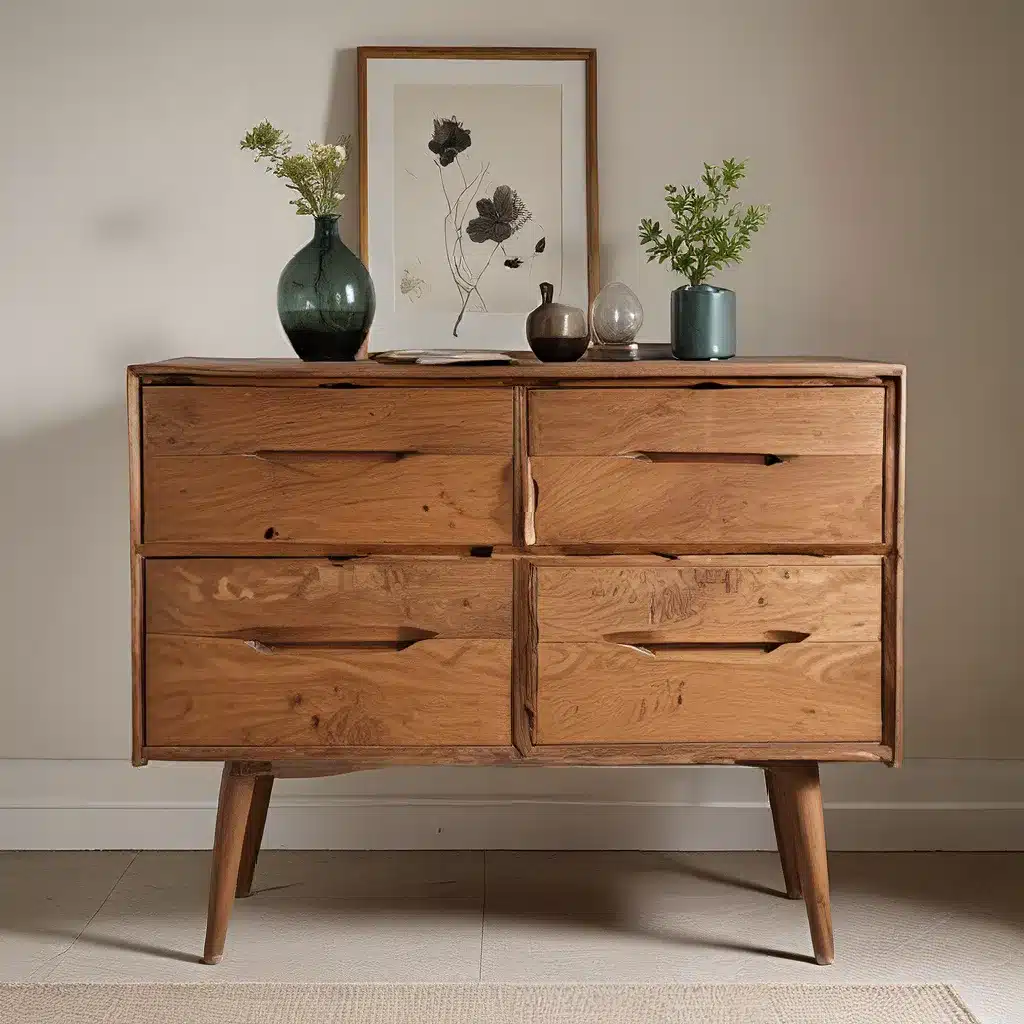
The Art of the Imperfect
Have you ever admired a piece of handcrafted furniture and found yourself captivated by its unique imperfections? Well, my fellow furniture enthusiasts, there’s a fascinating Japanese philosophy that celebrates precisely that – the beauty of natural flaws and irregularities. It’s called Wabi-Sabi, and it’s the inspiration behind our exploration of embracing the imperfect in the world of bespoke furniture.
You see, for far too long, we’ve been conditioned to chase perfection. That pristine, mass-produced look that’s somehow deemed the pinnacle of quality. But what if I told you that the true beauty lies in the imperfect, the flawed, the one-of-a-kind? That’s the essence of Wabi-Sabi – finding the extraordinary in the ordinary, the elegance in the imperfect.
Celebrating the Unique
I’ll admit, it wasn’t always this way for me. Like many, I used to strive for perfection in every aspect of my life, from the furniture in my home to the projects I tackled. But then, something remarkable happened. I stumbled upon an old reclaimed wood table, and it was love at first sight. Sure, it had a few cracks and scratches, but there was a certain charm to it that I couldn’t quite put my finger on. That’s when I realized – this table wasn’t just a piece of furniture, it was a work of art, with a story to tell.
Since then, I’ve made it my mission to surround myself with items that embrace the beauty of imperfection. From hand-thrown pottery to hand-knit sweaters, I’ve learned to appreciate the unique character that comes with being one-of-a-kind. And you know what? It’s been incredibly liberating. No more worrying about the perfect match or the flawless finish. Instead, I can simply revel in the individuality of each piece, knowing that it’s a reflection of the skilled artisan who crafted it.
The Allure of Bespoke Furniture
This philosophy of embracing the imperfect is at the heart of the bespoke furniture movement. Unlike mass-produced pieces, each handcrafted item is a true original, with its own distinct personality and character. Unfinished Furniture, for example, has made it their mission to celebrate the beauty of unique flaws, creating stunning pieces that showcase the natural variations in the wood grain and the subtle hues that can only come from a careful, meticulous hand-finishing process.
Just imagine running your fingers over the smooth, hand-rubbed surface of a one-of-a-kind dresser, feeling the subtle undulations and the slight imperfections that give it that irresistible charm. Or picture a solid wood table, with its captivating checks and cracks – a testament to the wood’s journey, a living, breathing piece of art that’s as much a part of nature as it is a work of human craftsmanship.
Embracing the Unpredictable
But it’s not just the visual appeal of these unique flaws that captivates us. There’s something deeply satisfying about the unpredictable nature of handmade furniture. Unlike mass-produced items, where every detail is meticulously controlled, bespoke pieces embrace the unexpected, the unplanned, and the delightfully imperfect.
Take, for example, the phenomenon of “checking” in solid wood furniture. As the wood responds to changes in humidity and temperature, small cracks and fissures begin to appear, each one a unique story of the material’s adaptation to its environment. Far from being a flaw, these checks and cracks add depth and character to the piece, a visual representation of the wood’s living, breathing nature.
The Mastery of Imperfection
And it’s not just the wood that showcases the beauty of imperfection. The hand-rubbed finishing process employed by skilled artisans is another testament to the art of the unique. Each layer of lacquer or stain is applied with care, creating subtle variations in color and texture that no machine could ever replicate.
It’s a process that requires immense patience and skill, as the craftsman meticulously works the finish into the wood, coaxing out its natural beauty and accentuating those captivating imperfections. The result is a surface that’s simultaneously smooth and textured, with a depth and richness that simply can’t be achieved through mass production.
Embracing the Inherent Flaws
But the beauty of imperfection in bespoke furniture isn’t just about the physical characteristics of the piece itself. It’s also about the inherent flaws and variations that come with the handmade process. Whether it’s a slightly uneven joint, a unique grain pattern, or a subtle asymmetry, these “flaws” are not to be seen as mistakes, but rather as the signatures of the skilled artisan who crafted the piece.
It’s a philosophy that encourages us to let go of our obsession with perfection and embrace the charming quirks and idiosyncrasies that make each piece truly one-of-a-kind. After all, what’s the point of a flawless piece of furniture if it lacks the character and personality that only comes from the human touch?
Caring for the Imperfect
Of course, embracing the beauty of imperfection doesn’t mean that we should neglect the care and maintenance of our beloved bespoke furniture. In fact, it’s crucial that we understand the unique needs and requirements of these handcrafted pieces, so that we can preserve their natural character and integrity for years to come.
That means being mindful of factors like humidity, temperature, and exposure to direct sunlight, all of which can impact the wood’s stability and appearance. It also means taking the time to properly clean and condition the surface, using gentle, natural products that won’t disrupt the delicate hand-rubbed finish.
The Timeless Appeal of the Imperfect
In the end, the beauty of embracing the imperfect in bespoke furniture lies not just in the physical characteristics of the pieces themselves, but in the deeper philosophies and mindsets that they represent. It’s about letting go of our obsession with perfection, and instead, celebrating the unique, the flawed, and the imperfectly beautiful.
It’s a journey that’s been centuries in the making, with roots in the ancient Japanese art of Wabi-Sabi, and it’s one that I believe has never been more relevant than it is today. In a world that often feels too polished, too uniform, and too perfect, the embrace of imperfection offers a refreshing and deeply satisfying counterpoint – a celebration of the inherent beauty in the natural, the handmade, and the one-of-a-kind.
So, my friends, I invite you to join me on this journey of embracing the imperfect. Let’s celebrate the unique flaws and quirks that make each piece of bespoke furniture a true work of art, and in doing so, maybe we’ll just find a little more beauty, a little more character, and a little more joy in the world around us. After all, as the saying goes, “Perfection is overrated, but imperfection is perfection.”




